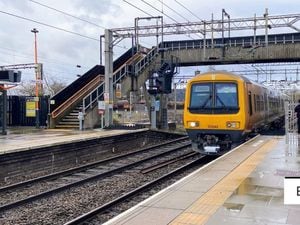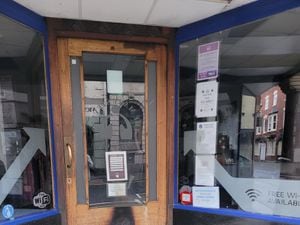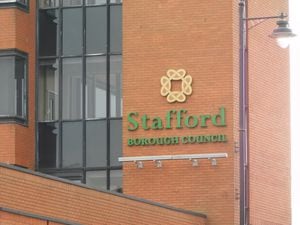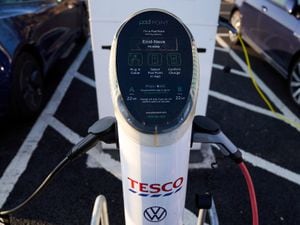Donald Trump travel ban: Where do you stand? Should the president's UK state visit be cancelled? Vote now in our poll
After more than one million people signed a petition calling for Donald Trump's UK state visit to be downgraded, we want to know your thoughts on the president's controversial travel ban.
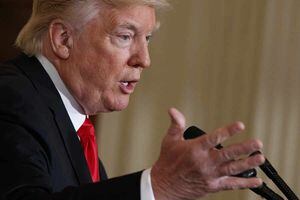
The anti-visit petition states: "Donald Trump should be allowed to enter the UK in his capacity as head of the US Government, but he should not be invited to make an official state visit because it would cause embarrassment to Her Majesty the Queen."
Once a petition gains the backing of 100,000 names, Parliament must consider debating the issue. Around 1,000 people have pledged to attend a protest against Trump's ban in Birmingham city centre from 6pm today.
The Trump petition is the second most supported since the online system was set up, with one calling for a second referendum on EU membership getting the backing of 4,150,260 people.
The president singled out seven countries, including Syria, as part of his travel ban.
The executive order, signed on Friday, put a temporary stop to the US's refugee programme, indefinitely banned Syrian refugees, and suspended all nationals from six other Muslim-majority countries - Iraq, Iran, Libya, Somalia, Sudan and Yemen.
Yet the order does not exclude Saudi Arabia, home to 15 of the 19 terrorists involved in the 9/11 terror attacks, and a country where President Trump has previously identified personal business interests.
The other four were from Egypt, Lebanon and the United Arab Emirates - none of which are included in the ban.
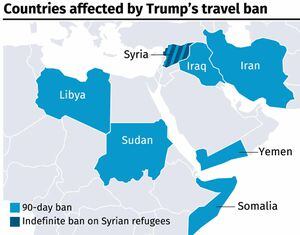
Donald Trump signed an executive order on Friday that makes major changes to America's immigration system, sparking confusion at airports, protests around the country and denunciations from leaders around the world.
Here is a look at what he ordered:
No entry
Mr Trump's executive order temporarily suspends all immigration for citizens of seven majority Muslim countries for 90 days. They are Iraq, Syria, Iran, Sudan, Libya, Somalia and Yemen.
The order also calls for Homeland Security and State Department officials, along with the director of national intelligence, to review what information the government needs to fully vet would-be visitors and come up with a list of countries that do not provide it.
The order says the government will give countries 60 days to start providing the information or citizens from those countries will be barred from travelling to the US.
Green card holders and dual citizens
Homeland Security Secretary John Kelly issued a statement on Sunday declaring that in the absence of information indicating a serious threat to public safety and welfare, residency would be a "dispositive factor in our case-by-case determination".
That means citizens of the seven target countries who hold permanent US residency "green cards" will not be barred from re-entering the US, as officials had previously said.
Officials also clarified on Sunday that dual citizens who are nationals of one of the seven target countries and a country that is not on the list will be subject to additional security screenings, but are likely to be allowed through.
Refugees
Mr Trump ordered a four-month suspension of America's refugee programme. The suspension is intended to provide time to review how refugees are vetted before they are allowed to resettle in the US.
The order also cuts the number of refugees the US plans to accept this budget year by more than half, to 50,000 people from around the world.
During the last budget year the US accepted 84,995 refugees, including 12,587 people from Syria. President Barack Obama had set the current refugee limit at 110,000.
The temporary halt to refugee admissions does include exceptions for people claiming religious persecution, as long as their religion is a minority faith in their country.
Syria
Mr Trump's order directs the State Department to stop issuing visas to Syrian nationals and halts the processing of Syrian refugees. That will remain in effect until Mr Trump determines that enough security changes have been made to ensure that would-be terrorists cannot exploit weaknesses in the current vetting system.
Extreme vetting
Mr Trump's order did not spell out specifically what additional steps he wants to see the Homeland Security and State Departments add to the country's vetting system for refugees. Instead he directed officials to the review the refugee application and approval process to find any other security measures that can be added to prevent people who pose a threat from using the refugee program.
During the Obama administration, vetting for refugees included in-person interviews overseas, where they provided biographical details about themselves, including their families, friendships, social or political activities, employment, phone numbers, email accounts and more. They also provided biometric information, including fingerprints.
Syrians were subject to additional, classified controls that administration officials at the time declined to describe, and processing for that group routinely took years to complete.
Protests have been planned around the globe, including in major UK cities on Monday evening, while Hollywood stars hit out at the policy at the Screen Actors Guild in Los Angeles on Sunday.
Boris Johnson is seeking to make a statement about the travel ban in the House of Commons today, which is highly likely to be approved by Speaker John Bercow.
Downing Street said its position on the state visit had not changed as a spokesman stated: "An invitation has been extended and accepted."
Number 10 also distanced itself from BBC reports that Downing Street sources rejected calls for the state visit to be cancelled as a "populist gesture" that would "undo everything" Theresa May achieved on last week's trip to the United States.
During the trip, Mr Trump accepted an invitation to visit Britain later this year, where he is due to be hosted by the Queen and would be treated to all the pomp and ceremony accorded to a state visit.
But Mr Johnson is likely to come under pressure to justify the trip amid outrage from senior Tories and opposition MPs.
Baroness Warsi, who was the first female Muslim cabinet minister, said the US president should not be given the honour.
"We have to question whether, in Britain, this is something that Britain should be doing for a man who has no respect for women, disdain for minorities, little value for LGBT communities, no compassion for the vulnerable and whose policies are rooted in divisive rhetoric," the Tory peer said.
She added: "Those who run and govern this country bowing down to a man who holds the views that he holds, values which are not the same as British values, I think is sending out a very wrong signal."

